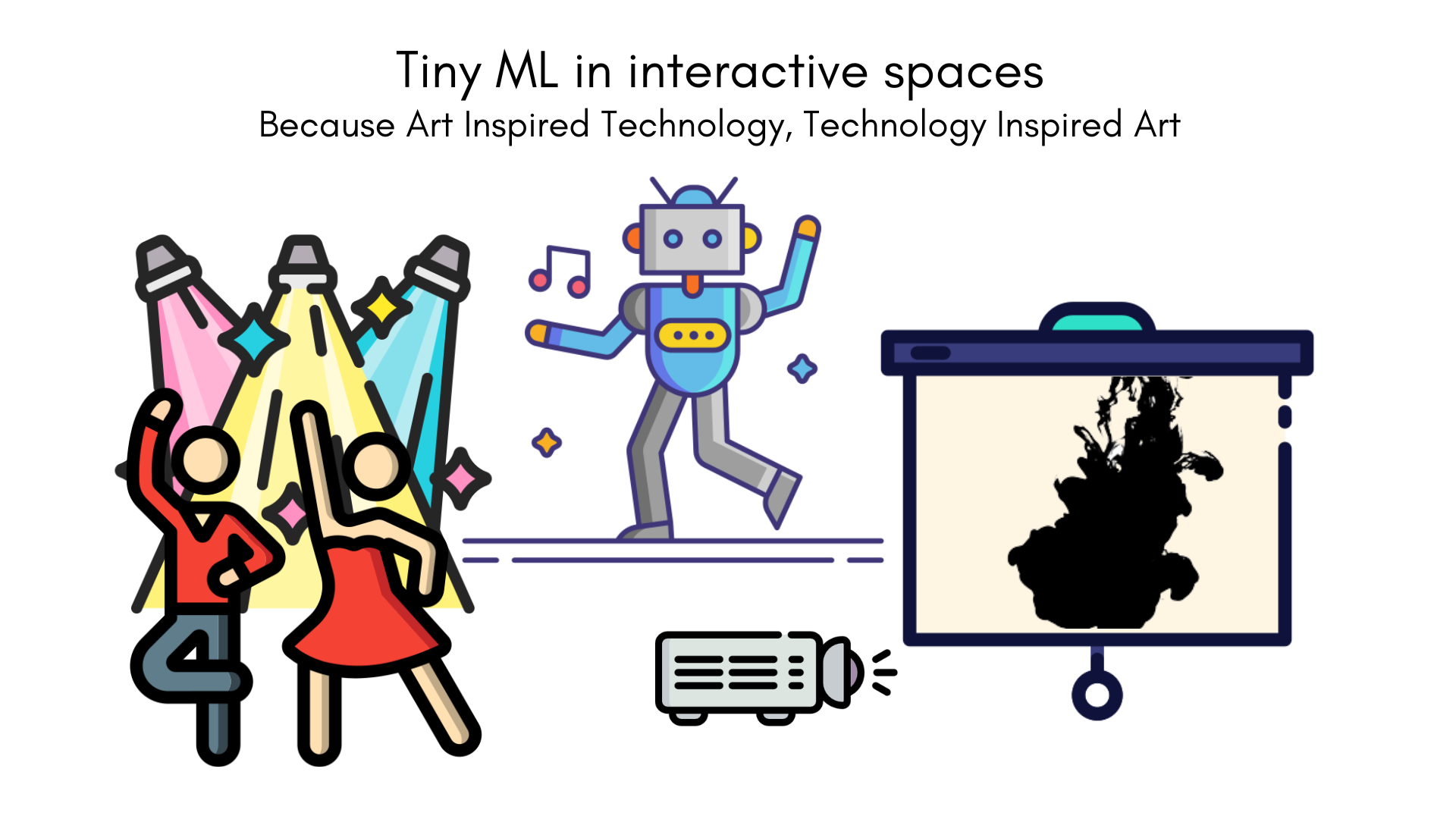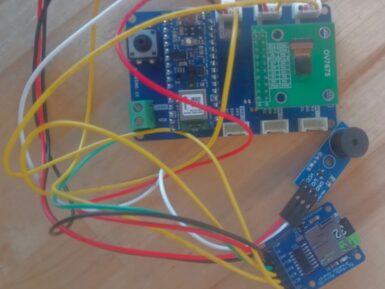
Arduino Engineering Kit Rev2
A versatile, hands-on learning tool that provides students a strong understanding of basic engineering concepts, core mechatronics, and MATLAB® and Simulink® programming through fun projects connected to real-world industries.
Overview
The Arduino Engineering Kit Rev 2 provides extensive learning outcomes, giving students a strong understanding of basic engineering concepts through fun projects that create a collaborative learning environment. Students are able to connect what they learn with real-world industries, are encouraged to think critically, and improve their depth of knowledge by learning through experimentation. Ideal for advanced high school and college students.
The Arduino Engineering Kit Rev 2 is a versatile, hands-on learning tool that demonstrates key control systems concepts, core aspects of mechatronics, and MATLAB® and Simulink® programming. The projects cover the basics of model-based design, control systems, image processing, robotics, signal processing, and more - plus they’re fun to do! The kit includes all the physical components you need, including learning materials and software, to build the three projects: a self-balancing motorcycle, a webcam controlled rover, and a drawing robot. There’s online step-by-step guidance, so it’s ideal for students working in small groups or for facilitating remote learning.
The kit is primarily for three types of users: students learning about mechatronics engineering, professors looking for practical resources to support their class, and makers with an interest or background in robotics, either professionally or as a hobby.
Adapting the kit and further experimentation
Educators can freely tailor the Arduino Engineering Kit Rev2 to their students´needs and their own curriculum. You can use this versatile kit as the core of a new engineering mechatronics class or freely adapt the content to your own ideas and experiments while implementing MATLAB® and Simulink®, for example as part of laboratories and final projects.
Opportunity for lots of experimentation for both educators and students. In addition to the three projects, students have the freedom to experiment, design, and develop new solutions using the software and hardware components in the kit, which are some of the tools that are used in industry and help students learn valuable career skills they’ll use in the future. Students can also buy the kit and use it to experiment at home and for extended learning.
The kit includes online learning content material with step-by-step instructions, lessons and activities, ideal for students working in small groups or for facilitating remote learning. Students and professors can use this versatile kit´s content as the core of a new engineering mechatronics class or freely adapt the content to their own needs and curriculum.
The content is designed to help students to get started with the kit, Arduino, Matlab and Simulink, and the basics of mechatronics. At the same time, it includes in-depth step-by-step activities on how to build, design and program three projects that help students to learn fundamental engineering concepts, key aspects of mechatronics, and MATLAB® and Simulink® programming through a hands-on way.
Visit a preview of the content at this link.
Tech specs
- The kit includes several customized parts, a complete set of electronics, and all the mechanical components needed to assemble each project (a webcam controlled rover, a self-balancing motorcycle, and a drawing robot):
- Arduino Nano 33 IoT
- Nano Motor Carrier with IMU and battery charger
- Three sets of mechanical pieces to assemble the projects
- Li Ion 18650 battery
- Two geared motors with encoders
- DC motor with encoders
- Servo motor
- USB cable
- Two whiteboard markers
- Two wheels
- Allen key
- Webcam
- Nylon thread
- Screws, nuts, and bolts
- A hard plastic, stackable toolbox ideal for storage and years of use
- A one-year individual license for MATLAB® and Simulink®
- Student e-learning platform with step-by-step guidance
Conformities
Resources for Safety and Products
Manufacturer Information
The production information includes the address and related details of the product manufacturer.
Arduino S.r.l.
Via Andrea Appiani, 25
Monza, MB, IT, 20900
https://www.arduino.cc/
Responsible Person in the EU
An EU-based economic operator who ensures the product's compliance with the required regulations.
Arduino S.r.l.
Via Andrea Appiani, 25
Monza, MB, IT, 20900
Phone: +39 0113157477
Email: support@arduino.cc
Get Inspired

An intelligent device to track moves with responses during an interactive space with mapping, backlight, music and smart sculptures. This project makes use of a machine learning algorithm capable of tracking and detecting moves to identify associated gesture recognition through a microcontroller. Smart sculptures, lighting, music and video projection to trigger with each assigned gesture, creating a powerful AV experience highlighting the incredible potential of TinyML for the performing arts. This allows the corresponding media set Tiny ML in interactive to play when the right move was made because all these elements interact to create a new experience. This allows us to create Interactive installations, these sculptures use a combination of motors, sensors, and other electronics to create an immersive and interactive experience for the viewer. They may include projections, sound, and other sensory elements to create a complete experience.

With an array of onboard sensors, Bluetooth® Low Energy connectivity, and the ability to perform edge AI tasks thanks to its nRF52840 SoC, the Arduino Nano 33 BLE Sense is a great choice for a wide variety of embedded applications. Further demonstrating this point, a group of students from the Introduction to Embedded Deep Learning course at Carnegie Mellon University have published the culmination of their studies through 10 excellent projects that each use the Tiny Machine Learning Kit and Edge Impulse ML platform. Wrist-based human activity recognition Traditional human activity tracking has relied on the use of smartwatches and phones to recognize certain exercises based on IMU data. However, few have achieved both continuous and low-power operation, which is why Omkar Savkur, Nicholas Toldalagi, and Kevin Xie explored training an embedded model on combined accelerometer and microphone data to distinguish between handwashing, brushing one’s teeth, and idling. Their project continuously runs inferencing on incoming data and then displays the action on both a screen and via two LEDs. Categorizing trash with sound In some circumstances, such as smart cities or home recycling, knowing what types of materials are being thrown away can provide a valuable datapoint for waste management systems. Students Jacky Wang and Gordonson Yan created their project, called SBTrashCat, to recognize trash types by the sounds they make when being thrown into a bin. Currently, the model can three different kinds, along with background noise and human voices to eliminate false positives. Distributed edge machine learning The abundance of Internet of Things (IoT) devices has meant an explosion of computational power and the amount of data needing to be processed before it can become useful. Because a single low-cost edge device does not possess enough power on its own for some tasks, Jong-Ik Park, Chad Taylor, and Anudeep Bolimera have designed a system where
FAQs
How is the Arduino Engineering Kit course structured?
Arduino Engineering Kit course content is divided into six chapters and is designed to be followed sequentially from chapters 1 to 3, which should be used as a reference when needed. Chapters 4, 5 and 6 are projects. They can be done in any order but it is recommended to start with chapter 4.
Which languages does the online platform support?
The Arduino Engineering online platform is currently available in English and Spanish. More languages will be added soon!
What engineering concepts are covered?
- The kit covers an introduction to:
- Mechatronics: DC motors, servos, encoders, motor drivers, PWM signals etc
- Model based design
- Control theory: PD control
- Image and signal processing
- Data visualization and analysis
- Applied physics and mathematics
- Text based programming with MATLAB®
- Visual programming with Simulink.
What projects are included in the Arduino Engineering Kit Rev2?
- Self-balancing motorcycle: Design a control system to keep this motorcycle upright using a flywheel for balance.
- Webcam controlled rover: Build and program a rover that can navigate between given reference points using a camera to locate its position and move objects with a forklift mechanism
- Drawing robot: Build and program a robot that can duplicate any drawing it’s given on a whiteboard
What are the differences between Arduino Engineering Kit Rev1 and Rev2?
The main differences are that the Rev2 kit features:
- Optimized compact hardware design with the new professional Arduino Nano 33 IoT
- Improved battery management with the custom Nano Motor Carrier Board
- Improved box and kitting for better classroom management and cargo safety
- Enhanced robot performance with new Simulink models
- Reduced assembly time and improved overall performance with better mechanical structure designs
- Content is upgraded and available on a new online platform for better user experience
- Upgraded MATLAB® and Simulink® to 2020A version
I have an Arduino Engineering Kit Rev1. Can I update it to Rev2?
Since the hardware is different in Rev2 it also has a different online platform with updated content. To get the new hardware and access to the updated online platform you need to purchase the Rev2. However, you can also choose to continue using your Rev1 and its online platform.
What operating system is required?
The Arduino Engineering Kit R2 requires one of the following operating systems:
Windows:
- Windows 7 Service Pack 1
- Windows 10 (version 1803 or higher)
- Windows Server 2019
- Windows Server 2016
Mac:
- macOS Big Sur (11)
- macOS Catalina (10.15)
- macOS Mojave (10.14)
Note: macOS High Sierra (10.13) is no longer supported
On macOS Mojave, version 10.14.6 is recommended.
Linux:
- Ubuntu 20.04 LTS
- Ubuntu 18.04 LTS
- Ubuntu 16.04 LTS
- Debian 10
- Debian 9
- Red Hat Enterprise Linux 8
- Red Hat Enterprise Linux 7 (minimum 7.5)
- SUSE Linux Enterprise Desktop 12 (minimum SP2)
- SUSE Linux Enterprise Desktop 15
- SUSE Linux Enterprise Server 12 (minimum SP2)
- SUSE Linux Enterprise Server 15
Note:
Red Hat Enterprise Linux 6 is no longer supported.
Support for Debian 9 will be discontinued in an upcoming release.
For more information, please check out the following link: https://se.mathworks.com/support/requirements/matlab-system-requirements.html)..html
Can I get replacement parts?
Yes, you can purchase the Engineering Kit Motors Backup and the USB Cable type A male to micro type be male, as replacement parts for the Arduino Engineering Kit R2.
Are MATLAB® and Simulink® included or do I have to pay extra?
One Arduino Engineering Kit includes a one-year free trial license of MATLAB®, Simulink® and other add-on products for one individual. This license is for educational use only, not for government, research, commercial, or other organizational use.
Can I transfer the code for accessing the learning material and the MATLAB® and Simulink® trial to another person?
The code for the MathWorks trial license and access to the online platform are NOT transferable.



















